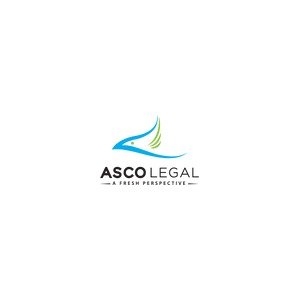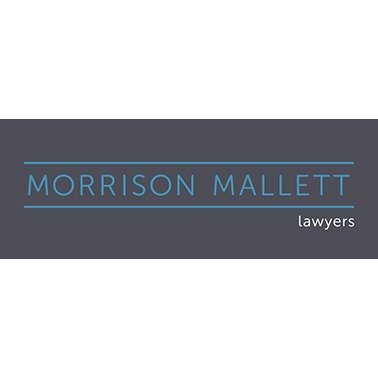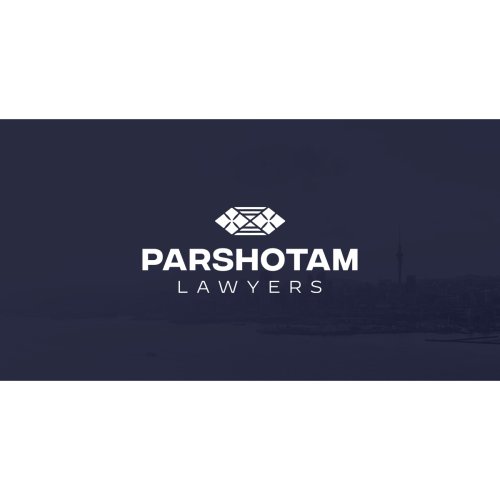Best Mining Law Lawyers in Auckland
Share your needs with us, get contacted by law firms.
Free. Takes 2 min.
List of the best lawyers in Auckland, New Zealand
About Mining Law in Auckland, New Zealand
Mining Law in Auckland, New Zealand, governs the exploration and extraction of mineral resources within the region. It is a complex field influenced by both national and local regulations. The sector encompasses a range of activities including prospecting, exploration, extraction, and rehabilitation of mining sites. Mining Law is designed to balance the economic benefits of resource extraction with the need to protect the environment, iwi (Māori tribes), and community interests. In Auckland, mining is regulated under national legislation such as the Crown Minerals Act 1991 and the Resource Management Act 1991, as well as Auckland Council’s planning documents. These laws control how mining operations are permitted, monitored, and enforced to ensure compliance and sustainable practice.
Why You May Need a Lawyer
Individuals and companies involved in mining activities in Auckland may encounter a range of legal challenges. You may require a lawyer experienced in Mining Law for situations such as:
- Applying for mining permits or licenses
- Understanding and complying with resource consent requirements
- Negotiating land access with private landowners or iwi
- Addressing disputes over mining rights or boundaries
- Handling environmental compliance and remediation obligations
- Appealing council or regulatory decisions regarding your operation
- Ensuring health and safety standards on mining sites
- Entering into joint ventures or project agreements
- Dealing with Māori land or Treaty of Waitangi settlement matters
- Coping with regulatory investigations or enforcement actions
A specialist Mining Law lawyer can help you navigate these situations, provide sound advice, and help you avoid costly mistakes.
Local Laws Overview
Mining operations in Auckland are subject to a regulatory framework that includes several key laws and local government processes. Some of the main legal aspects include:
- Crown Minerals Act 1991 - This national law governs the permitting and management of mining rights for minerals owned by the Crown. It sets out how permits are issued and the conditions they carry.
- Resource Management Act 1991 (RMA) - This Act focuses on sustainable environmental management. Mining projects usually require resource consents under the RMA, which are granted (or denied) by Auckland Council after environmental impact assessments.
- Auckland Unitary Plan - This local planning document controls where mining activities can occur in Auckland and under what conditions. Specific land zoning and overlays may restrict or prohibit mining in certain areas.
- Māori and Treaty Rights - Engagement with iwi is often required, particularly when projects may affect culturally significant sites or Treaty of Waitangi settlements.
- Health and Safety at Work Act 2015 - Mining businesses must implement stringent health and safety practices under this law.
- Other Environmental Regulations - Additional laws protect biodiversity, heritage, and water quality, and may apply depending on the nature and location of the mining activity.
Auckland Council is the primary consenting authority locally, but central government agencies also have oversight, particularly for significant or sensitive projects.
Frequently Asked Questions
What steps are involved in obtaining a mining permit in Auckland?
The process includes lodging an application with the New Zealand Petroleum and Minerals (NZPAM) under the Crown Minerals Act, providing detailed information about the project, and often engaging with affected landowners and iwi. Environmental assessments and resource consents from Auckland Council are typically also required before work can begin.
What is a resource consent and why do I need one?
A resource consent is official permission from Auckland Council to undertake an activity that might affect the environment or is not otherwise permitted in the local planning rules. Mining often impacts land, water, and air so resource consents are generally required.
Can I mine on private land in Auckland?
You may be able to mine on private land but you need both the appropriate mining permit and the landowner’s agreement for access. Consent requirements and local planning rules still apply regardless of land ownership.
Do Māori have special rights relating to mining projects?
Yes. Māori have rights under the Treaty of Waitangi, and projects affecting their customary interests or Treaty settlements usually require consultation or engagement with relevant iwi. Failing to do so can halt or delay projects.
What are the main environmental considerations for mining operations?
Key considerations include protecting water quality, managing waste, controlling dust and noise, biodiversity impacts, rehabilitation of the site after mining, and adhering to conditions set by the resource consents.
What are the penalties for non compliance with mining laws?
Penalties can include fines, enforcement orders, suspension or cancellation of permits, and in serious cases criminal prosecution. Non compliance can also result in reputational harm and loss of future opportunities.
What are my rights if a mining project affects my property?
As a landowner, you have the right to negotiate access terms and seek compensation for any damage. You may also object to resource consent applications and participate in public hearings depending on the impact.
Who regulates mining activity in Auckland?
Mining in Auckland is regulated primarily by NZPAM and Auckland Council. Other government agencies may be involved depending on the specifics of the mining operation.
How long does it take to get approval for a mining project?
The time frame can vary widely depending on the size, location, and complexity of the project. Small projects may take several months while larger or more controversial projects can take years, especially if public consultation or appeals are involved.
Where can I find professional legal help for mining matters in Auckland?
You can consult law firms or individual lawyers specialising in mining and environmental law. The New Zealand Law Society maintains a directory of qualified specialists.
Additional Resources
If you need more information or support regarding Mining Law in Auckland, the following resources and organisations can help:
- New Zealand Petroleum and Minerals (NZPAM) - for information on mineral permits and applications
- Auckland Council - for resource consents, local planning rules, and environmental compliance
- Ministry for the Environment - for policy and national environmental standards
- New Zealand Law Society - for finding qualified legal professionals in mining law
- Te Puni Kōkiri (Ministry of Māori Development) - for information about Māori land and engagement processes
- Department of Conservation - for mining on or near conservation land
- WorkSafe New Zealand - for mining health and safety information
Next Steps
If you require legal assistance with mining matters in Auckland, consider the following steps:
- Gather all relevant documents about your project or issue such as permit applications, consent forms, or correspondence with authorities
- List your main concerns, questions, and objectives to clarify what you need legal advice on
- Contact a lawyer or law firm with expertise in mining and environmental law-look for experience with Auckland’s local regulations and processes
- Arrange an initial consultation where you can discuss your situation, possible strategies, and costs involved
- Be prepared to provide additional information or attend meetings with regulators, iwi, or other stakeholders as required
Qualified legal counsel can help you navigate the complexities of Mining Law, safeguard your interests, and ensure that your project or concerns are managed in accordance with New Zealand law.
Lawzana helps you find the best lawyers and law firms in Auckland through a curated and pre-screened list of qualified legal professionals. Our platform offers rankings and detailed profiles of attorneys and law firms, allowing you to compare based on practice areas, including Mining Law, experience, and client feedback.
Each profile includes a description of the firm's areas of practice, client reviews, team members and partners, year of establishment, spoken languages, office locations, contact information, social media presence, and any published articles or resources. Most firms on our platform speak English and are experienced in both local and international legal matters.
Get a quote from top-rated law firms in Auckland, New Zealand — quickly, securely, and without unnecessary hassle.
Disclaimer:
The information provided on this page is for general informational purposes only and does not constitute legal advice. While we strive to ensure the accuracy and relevance of the content, legal information may change over time, and interpretations of the law can vary. You should always consult with a qualified legal professional for advice specific to your situation.
We disclaim all liability for actions taken or not taken based on the content of this page. If you believe any information is incorrect or outdated, please contact us, and we will review and update it where appropriate.

















